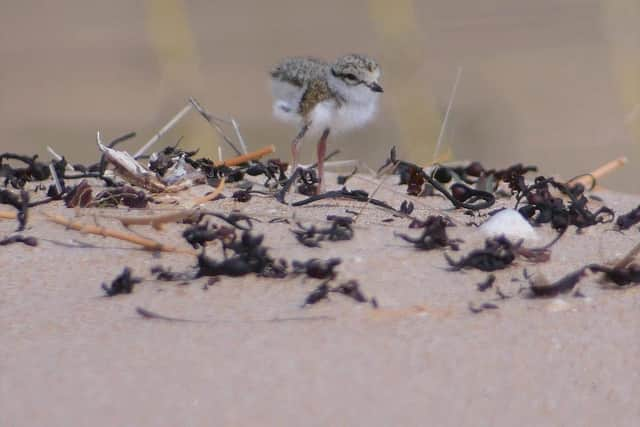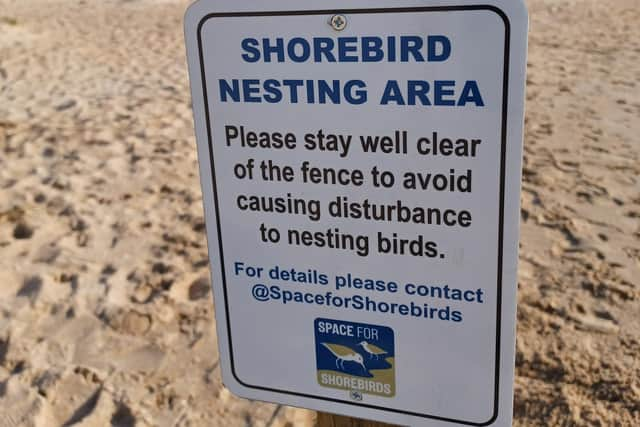Walkers urged to tread carefully and beware nesting birds if visiting Northumberland beaches
and live on Freeview channel 276
Last year a huge effort went into protecting chicks, which led to 14 successfully fledging from specially designated nest protection areas.
The birds which spend the most of the year in Northumberland – such as the purple sandpiper, sanderling and turnstone – are leaving our shores soon to migrate to their arctic breeding grounds, but ringed plovers are preparing to nest on our beaches.
Advertisement
Hide AdAdvertisement
Hide AdAt the same time, global travellers such as arctic terns which have spent the winter travelling the southern oceans and little terns that have wintered in west Africa are heading to our beaches to breed, where they nest in colonies at Lindisfarne National Nature Reserve and the National Trust’s Long Nanny tern colony, situated just south of Beadnell.


Ringed plover are the most widespread shore nesting species on the Northumberland coast, where they nest on sandy and shingle beaches at low densities.
They are very difficult to spot, which means walkers and dog walkers can disturb the birds without realising, pushing the birds off eggs that need to be kept warm until they hatch.
They are a species in decline and are ‘red listed’ as a species of conservation concern, so it is especially important that they are protected.
Advertisement
Hide AdAdvertisement
Hide AdIt takes around 24 days of incubating for ringed plover chicks to hatch, but they will start looking for food after just a few hours.


At this stage they are just tiny balls of fluff and feather, so they are vulnerable to crows, kestrels, gulls – and of course walkers.
Richard Willis, senior wildlife ranger, said: “Disturbance and trampling are serious threats to these birds and so it is vital that we provide fenced refuges where they can safely nest. We’re therefore asking everyone to give these areas lots of space, especially if a dog is present.”
Cllr Colin Horncastle, cabinet member for community services, added: “ The council is committed to providing the homes that people need and helping the tourism industry to thrive."However, part of what makes the Northumberland coast so special is the wildlife, including our shore nesting birds like ringed plovers, so we are determined to help protect them for future generations.”